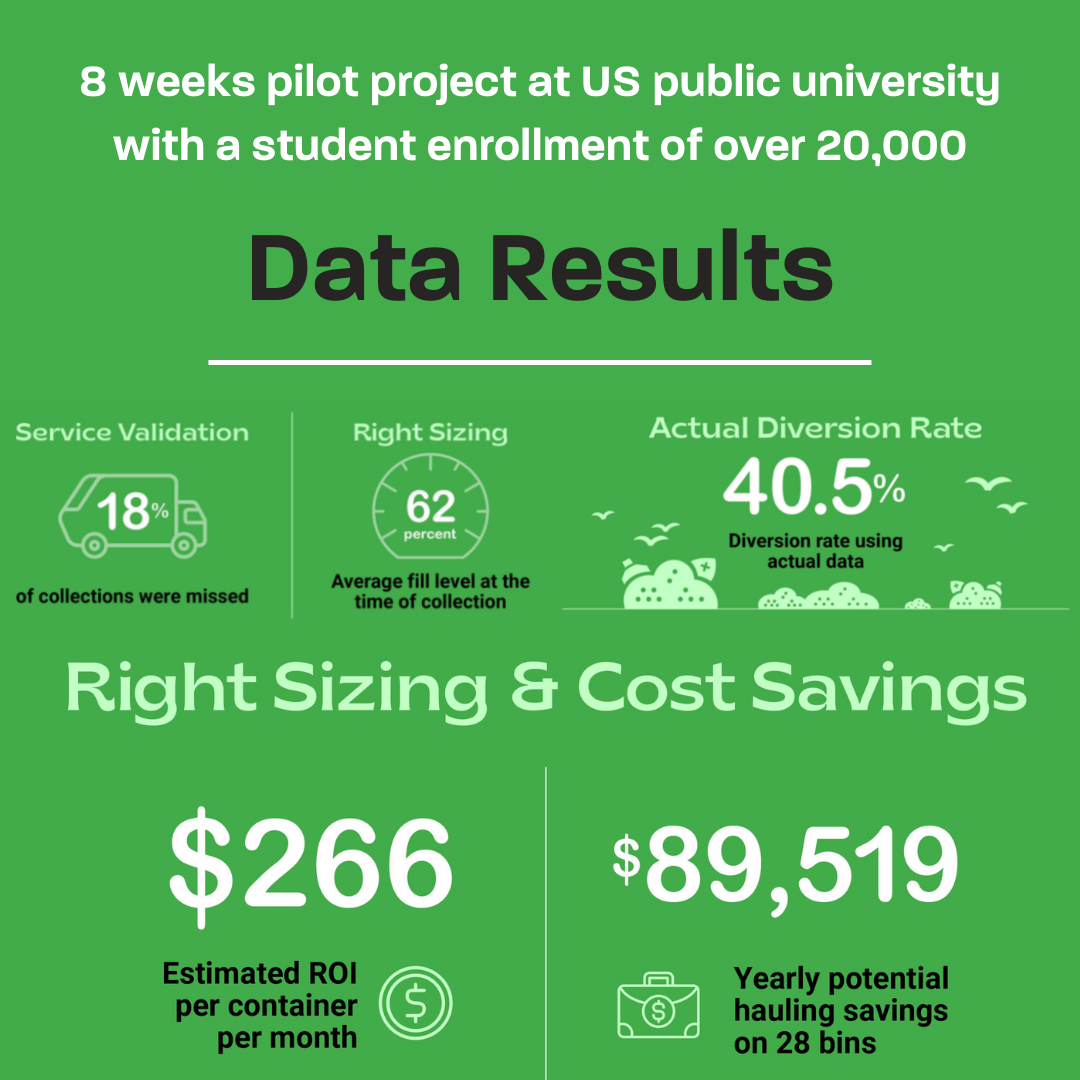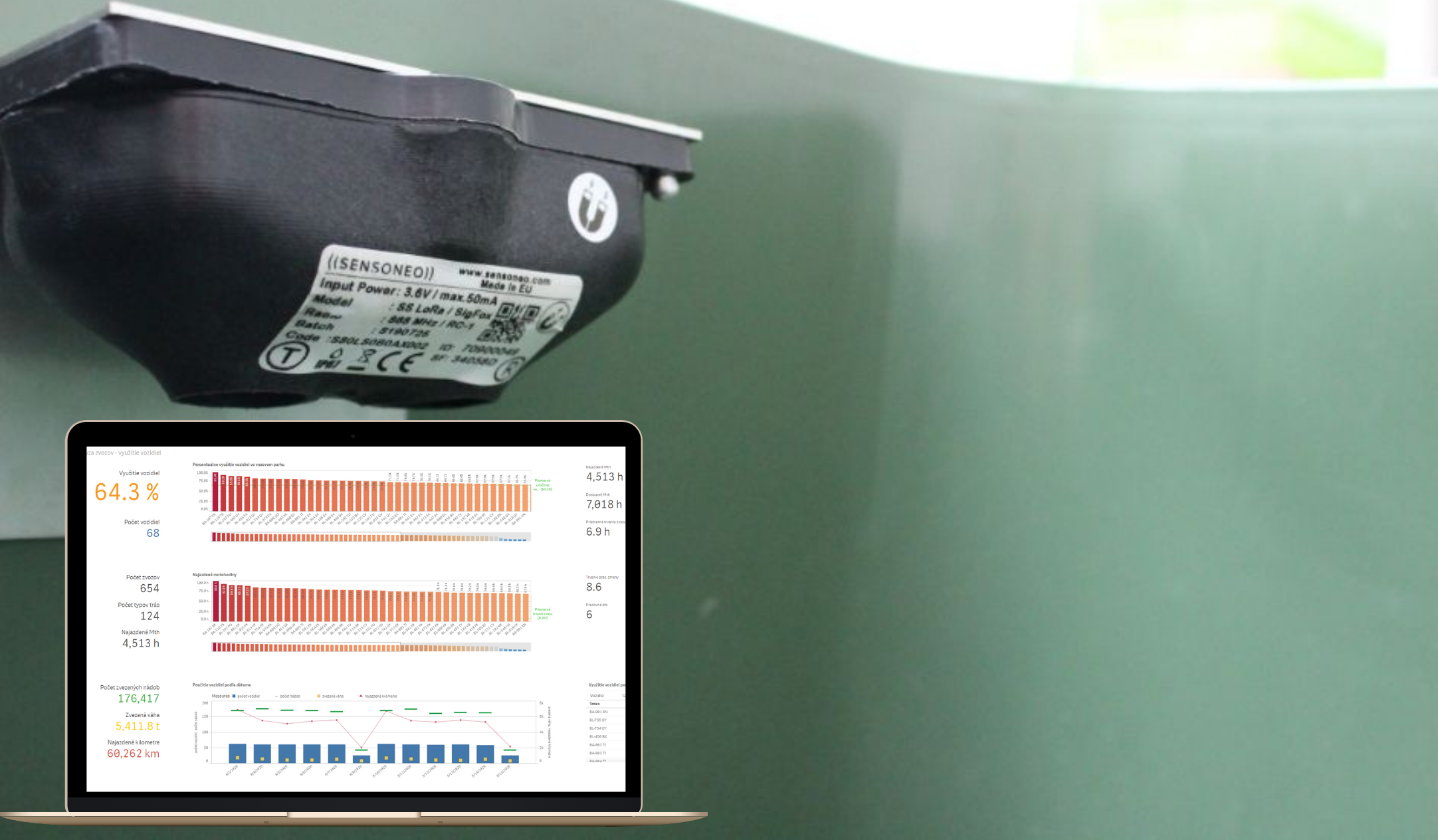18% of waste collections were missed
Reference: US University pilot with waste fill-level monitoring sensors
University Pilot Case Study Results
Sensoneo recently released the results of a successful US university sensor pilot program. The pilot snapshot shown here offers 8 weeks of data. The university was pleased with the real-time data captured which gave it insights into how full their bins are.
The fill-level data collected showed the university opportunities to right-size and where the hauler could reduce pickups. The data provided the university the ability to track the hauler, and that the hauler is picking up on schedule.
Furthermore, the university was interested in the amount of waste generated and more importantly, the amount of waste diverted. Before data was available, the university was forced to assume the bins were 100% full, therefore under reporting the waste diverted.
WHO?
A public university with a student enrollment of over 20,000
WHAT?
Single Sensors installed on both general and recycling containers
WHY?
The university was looking to determine the number of pickups needed and to right-size the containers to save costs and increase efficiency.
Data Results of 8 weeks of Sensors Pilot
62% average fill level at the time of collection
$266 estimated ROI per container per month
$89,519 yearly potential hauling savings on 28 bins
40.5% diversion rate using actual data
Results
The university chose to roll out campus-wide. The university found value in the service verification component of the Sensoneo sensors. It also saw how the data captured will show the waste diverted into recycling and looks forward to getting the rest of the bins online.
The university used the sensor data to not only increase the efficiency of their waste operations but also increase the cost savings from right-sizing pickups. They will achieve increased efficiency and cost savings after the rollout.

Sensors used in this deployment - Single Sensor 3.0
Sensoneo Smart Sensors are designed, developed and produced inhouse (made in EU). The sensors are robust, water and shock resistant, fully functional within wide temperature range, and are set to measure from 3 cm up to 12 m.
The sensors can monitor any type of waste – including liquids – of bins of various types and sizes. The casing is made from recyclable polyimide optical fibers that provide not only an eco-design, but also help with recycling. Sensors have various mounting options, for example with help of screws, clench or rails. Wireless configuration works with Mobile App via BLE or Downlink.
Order Starter Kit
